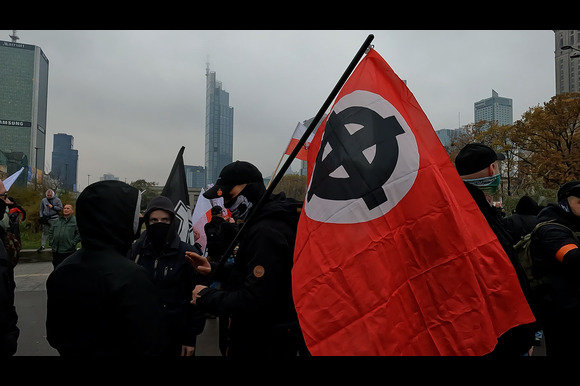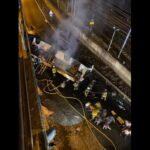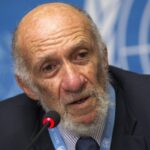A South African national who was filmed participating in a neo-Nazi demonstration outside an Australian state parliament has had his visa cancelled by authorities.
Matthew Gruter, who has resided in Australia since 2022, was identified at an anti-Jewish protest held outside the New South Wales parliament earlier this month. The event was organised by the National Socialist Network, an openly neo-Nazi organisation.
Footage and images circulated by Australian media showed Gruter among roughly 60 black-clad participants who displayed a banner reading “Abolish the Jewish lobby”.
Australia has recorded a noticeable escalation in far-right extremism in recent years. In response, the government introduced legislation that makes performing the Nazi salute punishable by a mandatory prison sentence. Confirming Gruter’s visa cancellation, Home Affairs Minister Tony Burke said the country had no obligation to tolerate such behaviour from non-citizens.
“If you are on a visa, you are a guest,” Burke stated. “If you’re a citizen, you’re a full member of the Australian family. And like any household, if a guest arrives and displays hatred or causes harm, they can be asked to leave.”
According to ABC News, Gruter relocated to Australia with his wife and works as an engineer. The Sydney Morning Herald reported that he holds a senior role within the National Socialist Network in New South Wales.
During the demonstration, protesters were heard chanting “blood and honour”, a slogan historically linked to the Hitler Youth, ABC News said.
New South Wales Premier Chris Minns condemned the event, describing it as a “shocking display of hatred, racism and antisemitism”. The rally reportedly lasted about 20 minutes.
Sarah Schwartz, executive officer of the Jewish Council of Australia, told ABC News that neo-Nazi groups pose a dangerous threat to the nation’s multicultural fabric. She said it was crucial to distinguish between legitimate peaceful protests and what she referred to as “hateful stunts”.
“These are acts of hate speech, and they should be recognised and treated as such,” she added.






